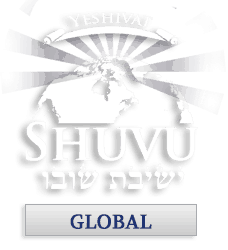וַיָּ֥זֶד יַֽעֲקֹ֖ב נָזִ֑יד וַיָּבֹ֥א עֵשָׂ֛ו מִן־הַשָּׂדֶ֖ה וְה֥וּא עָיֵֽף: וַיֹּ֨אמֶר עֵשָׂ֜ו אֶל־יַֽעֲקֹ֗ב הַלְעִיטֵ֤נִי נָא֙ מִן־הָֽאָדֹ֤ם הָֽאָדֹם֙ הַזֶּ֔ה כִּ֥י עָיֵ֖ף אָנֹ֑כִי עַל־כֵּ֥ן קָֽרָא־שְׁמ֖וֹ אֱדֽוֹם: וַיֹּ֖אמֶר יַֽעֲקֹ֑ב מִכְרָ֥ה כַיּ֛וֹם אֶת־בְּכֹרָֽתְךָ֖ לִֽי: וַיֹּ֣אמֶר עֵשָׂ֔ו הִנֵּ֛ה אָֽנֹכִ֥י הוֹלֵ֖ךְ לָמ֑וּת וְלָֽמָּה־זֶּ֥ה לִ֖י בְּכֹרָֽה: וַיֹּ֣אמֶר יַֽעֲקֹ֗ב הִשָּׁ֤בְעָה לִּי֙ כַּיּ֔וֹם וַיִּשָּׁבַ֖ע ל֑וֹ וַיִּמְכֹּ֥ר אֶת־בְּכֹֽרָת֖וֹ לְיַֽעֲקֹֽב:
Now Jacob cooked a pottage, and Esau came from the field, and he was faint. And Esau said to Jacob, “Pour into [me] some of this red, red [pottage], for I am faint”; he was therefore named Edom. And Jacob said, “Sell me as of this day your birthright.” Esau replied, “Behold, I am going to die; so why do I need this birthright?” And Jacob said, “Swear to me as of this day”; so he swore to him, and he sold his birthright to Jacob. Genesis 25:29-33
This week’s parasha contains the story of the birth of Jacob and Esau, fraternal twins of vastly different personalities. After they grow, Torah includes a story involving these two different personalities and the continuity of the covenant of Abraham.
Esau was a hunter. Jacob was a farmer and shepherd. As the story goes, Esau was returning from a hunt and came across Jacob, who was cooking red lentils. Esau was famished and demanded that Jacob “pour into him” the red stuff.
Jacob then tells Esau to sell him his birthright. This section of Torah is often misinterpreted and misunderstood. Jacob does not name a price for Esau selling him the birthright. In other words, there is no indication that the red lentils are the price of the birthright. The story continues with Esau, engaging in hyperbole, “behold, I am going to die.” And then Esau exclaims these important words “so why do I need a birthright?” This proclamation makes it quite clear that Esau does not care about the birthright, that is, the land of the promise. The sages explain that Jacob paid a fair price to Esau for the birthright. The red lentils were a sign of the vow and not the price of the birthright. The vow was that Esau should sell the birthright to Jacob.
Why does Esau not care about the covenant of Abraham? The difference in personalities explains this. Esau was a nomadic hunter. He had no real use for fixed boundary property. Jacob, on the other hand, was a farmer and herdsmen. This lifestyle demands fixed boundary property. So the covenant of the land was in innately of very high value to Jacob. Consequently, when Jacob asked Esau to sell the birthright, Esau could find no reason not to sell the birthright for a fair price. And he could get a bowl of red lentils immediately as the sign of the vow. With the Sage’s explanation, we see that Jacob was not trying to swindle Esau at all. But rather, Jacob simply moves to possess something that had a far greater value to him than to his brother. Shabbat shalom.
